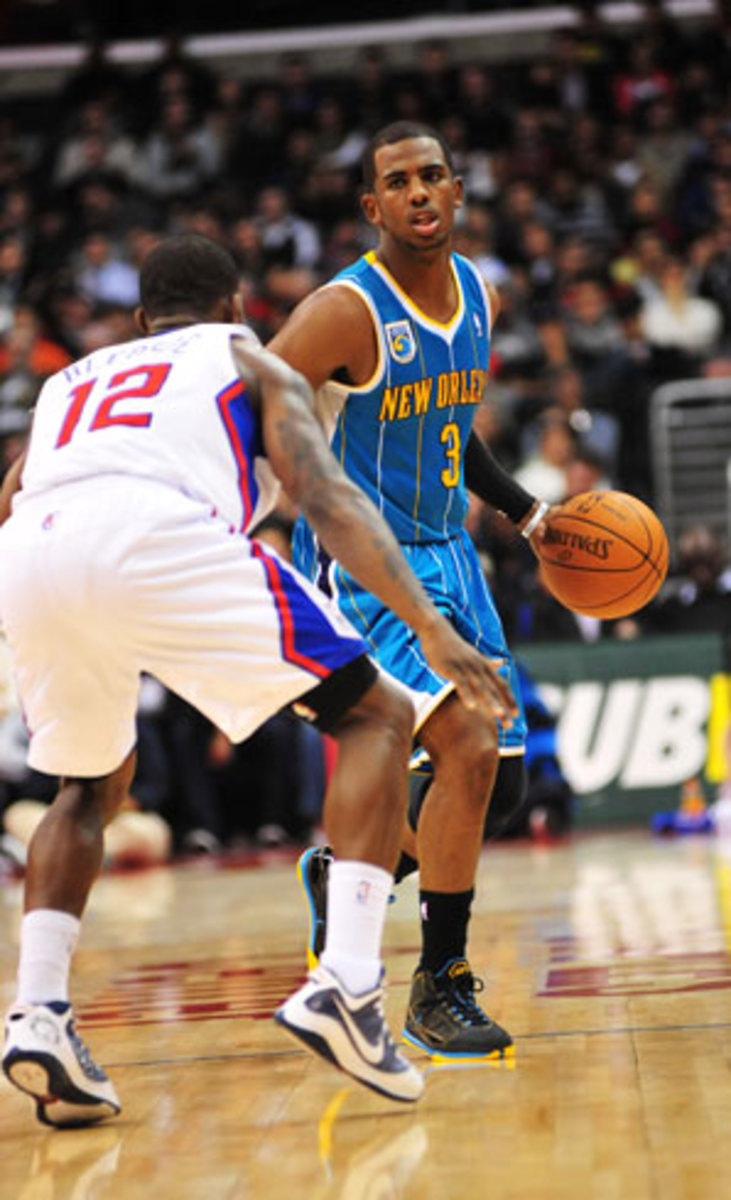Future of Hornets looks bleak in NBA-unfriendly New Orleans
Chris Paul is gone, his future Donald Sterling's problem now. The most controversial trade in recent memory -- what else can you call a deal the commissioner has to approve and 29 owners get to whine, I mean, weigh in on? -- is in the books. Debate over whether or not the NBA shoved Hornets GM Dell Demps into a corner, whether the Lakers/Rockets offer was better than the Clippers,' whether there is a conflict of interest for a man (David Stern) hell bent on keeping star players in small markets to have unilateral control in deciding where and when one will be traded will evaporate around the water cooler.
The NBA and the Hornets are moving on.
Except they are not. The league still owns the Hornets, still has ultimate control over every significant decision. Demps wants to dump Emeka Okafor? Ask Stern. He wants to offer Eric Gordon a contract extension? Ask Stern. He wants to deal the likely lottery pick he acquired in the Paul deal? It's a 212 area code, Dell. Trading Paul moved Stern and the NBA out of the line of fire, but they won't be completely clear until they find someone willing to buy the team.
On a conference call Wednesday night Stern didn't offer much of a concrete timeline for when the league would find an owner, saying he hoped to have someone in place within the first six months of next year. He was clear about what parameters a prospective owner would have to accept: stay in New Orleans, stay in New Orleans Arena. When asked point blank if he would accept any bids from owners interested in moving the team out of the bayou, Stern said, emphatically, no.
"I think the future of the Hornets in New Orleans is looking better today than it's ever looked before," Stern said. "I'm very excited about that because I think the NBA sort of implicitly made representations to the community that it would do the best it could providing [team president] Hugh [Weber] and [chairman] Jac [Sperling] with additional support on the marketing side, giving Dell whatever he needed from a basketball advice, and actually within approved budgets, supporting the team financially. And we feel that we're well on in accomplishing that goal."
Stern is optimistic about the team's future in New Orleans, though it's difficult to see why. The Hornets were 26th in the NBA in attendance last season (14,709) and in seven full seasons in the city, they have routinely ranked in the bottom third. They needed a late push in ticket sales just to meet the minimum attendance average that guaranteed the team would play in New Orleans this season, a goal that was met only after the Hornets' business council received $420,000 in pledges to buy tickets from local businesses. The team lost $18.24 million in 2009-2010 and, according to Forbes, was more than $100 million in debt when the league bought it last year.
The city has never committed to the team, never established itself as a true NBA market. Moving back to New Orleans after Hurricane Katrina stranded it in Oklahoma City for two seasons was, to most, morally right, if not fiscally wrong. The Hornets were not the Saints and were not woven into the fabric of the community. They were a long-term rental, imported from Charlotte after then-owner George Shinn burned every bridge in that town. They should have stayed in Oklahoma City, a basketball crazed market that has proven with the Thunder to be strong. They should have stayed, and there isn't a member of the organization that privately won't share that same feeling.
Yet Stern thinks the NBA can thrive in New Orleans, which is why his new cause is making it work. He won't entertain any out-of-town buyers -- not from Kansas City, Las Vegas or Seattle. The league is negotiating a lease extension, Stern said, and "ownership will be contingent on a new owner accepting the lease." He said before the lockout the league projected this season to be profitable for the Hornets and believes a combination of fresh corporate sponsors, a new CBA and revenue sharing will balance the books.
But Stern is limiting his options at a time when he should be reaching for more. The fans will be in the seats this season but only because the team and league spent months selling 10,000 season tickets to an uncertain fan base. What happens over the next few months, with Paul gone and sales agents cold-calling prospective buyers with only Eric Gordon, Al-Farouq Aminu and Trevor Ariza to hook them with?
Stern shouldn't declare his intention to leave New Orleans, but he shouldn't chain himself to the city, either. Talk to Larry Ellison again, even if the Oracle billionaire wants to move the team to San Jose. Talk to people with ties to the Sprint Center in Kansas City, a serene $292 million arena just waiting for an NBA tenant. Talk to representatives in Seattle and see if that basketball-starved city can finally get an arena built to support it.
Give New Orleans a chance to keep its team, but don't just award it to them outright. The Paul trade, Stern said, was about business, about doing what is best for the future of the franchise. Deciding where that future is should be a business decision, too. Take away the emotion, forget about the kick to the ego Stern feels when a franchise bolts out of town. If the numbers support New Orleans, fine. But if they don't, it can't hurt to look around.






